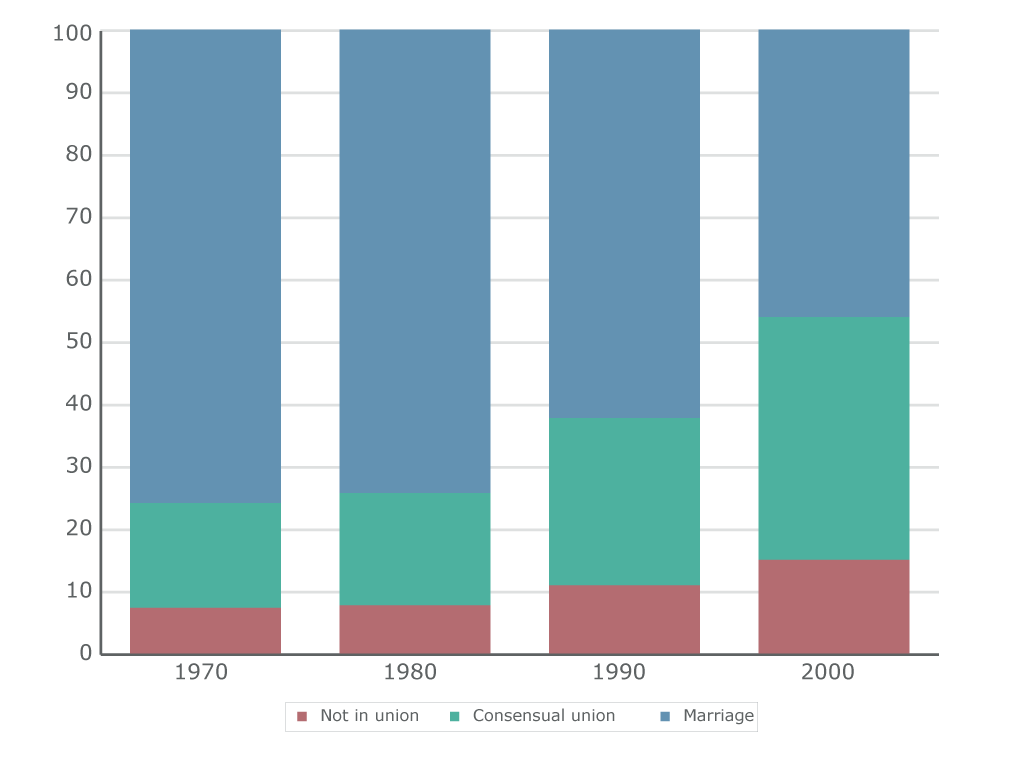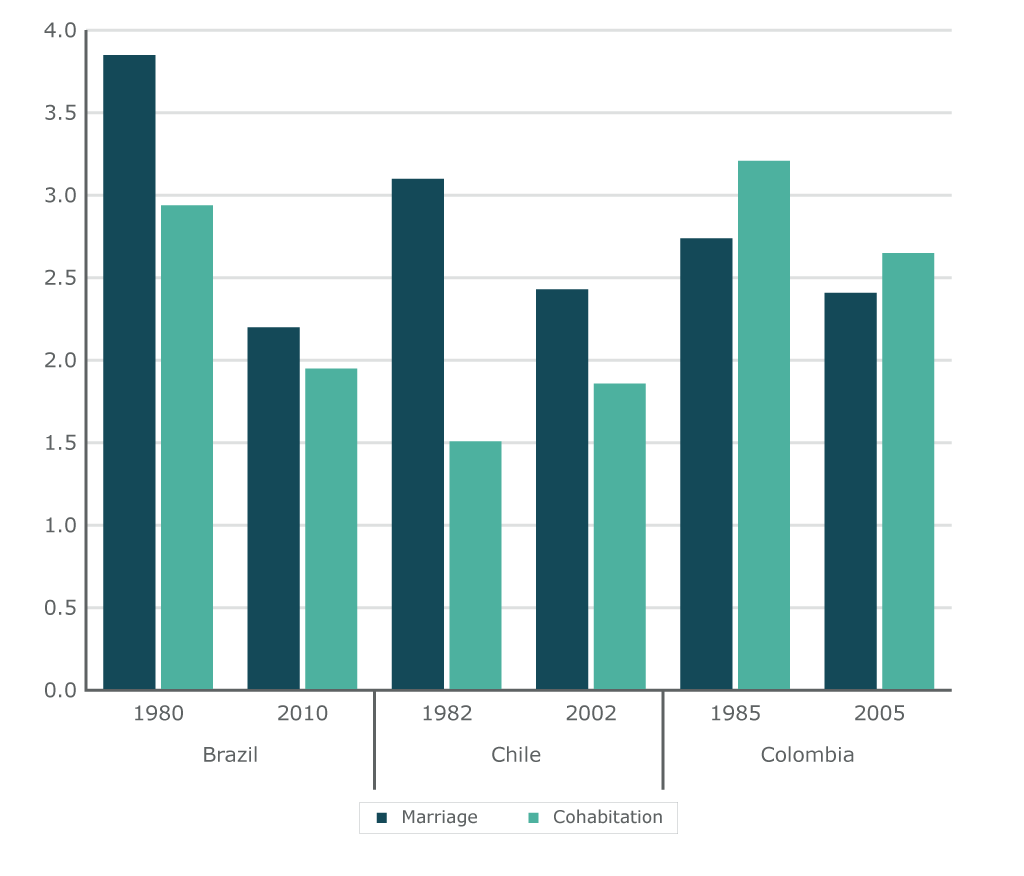Union formation in Latin America has long been characterised by the coexistence of marriage and consensual unions as part of the family system. Traditionally, consensual unions have been widespread among the disadvantaged social groups and in rural areas, while exceptional among the better-off.
By the end of the 1990s, however, more and more people appertaining to the middle and upper social classes started living together without getting married. While among the lower social groups cohabitation has always been linked to childbearing, little is still known about the meaning attached to cohabitation among the middle and upper classes. It is unclear whether well-educated young people decide to live together only for a while before getting married, or decide to cohabitate and raise their children without planning on marriage.
In this study, Benoît Laplante, Teresa Castro-Martín, Clara Cortina and Teresa Martín-García examine what cohabitation means to different people across countries, social classes and over time in Latin America by comparing fertility patterns of married women and those in consensual unions during the period 1980-2010. Has cohabitation become an accepted alternative to marriage for bearing and raising children also among the upper and middle social classes? The findings of this study suggest that fertility patterns in Latin America do not diverge significantly among married and cohabiting couples across social classes.
No social class effect
Authors found that fertility is always lower among highly educated women in Latin America, independent of the type of union. But there is an important difference: Women with less than a primary-level education tend to have more children if they are living in unmarried cohabitation than married, whereas women with university degrees tend to have more children if they are married.
Over the last four decades, consensual unions in the region have spread from the lower to the upper social class, embracing the whole population (Figure 1). This process of diffusion has also reached the family context of childbearing. Nowadays, fertility patterns of couples living in cohabitation barely differ across social classes (Figure 2). This is due to the fact that women with a university degree are more likely to live in consensual unions than in the past, and also to have children within cohabitation, in the same fashion as their less-educated counterparts.

Figure 1. Change in the distribution of births according to the conjugal status of women in selected Latin American countries, 1970–2000 (percent). (Source: Census microdata, IPUMS-International. Countries included: Argentina, Bolivia, Brazil, Chile, Colombia, Costa Rica, Cuba, Ecuador, Mexico, Panama, Peru, Uruguay, and Venezuela).

Figure 2. Estimates of the conditional total fertility rate of women (aged 15-49) with a university education by conjugal situation. (Source: Table A1 Supporting information available here)

*This PopDigest has received funding from the European Union's Seventh Framework Programme (FP7/2007-2013) under grant agreement n° 320116 for the research project FamiliesAndSocieties.
FamiliesAndSocieties (www.familiesandsocieties.eu) has the aim to investigate the diversity of family forms, relationships and life courses in Europe, to assess the compatibility of existing policies with these changes, and to contribute to evidence-based policy-making. The consortium brings together 25 leading universities and research institutes in 15 European countries and three transnational civil society organizations.